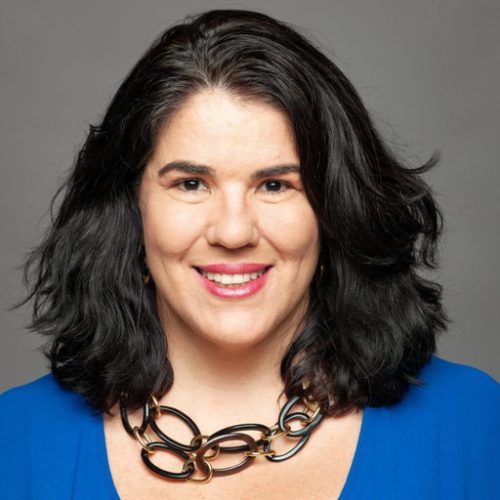María Elena Villar is an associate professor in the Department of Communication and co-director of the Steven Cruz Institute for Science, Media + Technology (SCI). She is also the CARTA Equity Advisor and an FIU ADVANCE Faculty Fellow.

Villar describes her overall discipline as the study of human communication. She focuses on mass communication, and specifically, strategic communication for social change, or the best way to reach marginalized groups with information about issues. She’s involved in a number of research projects, including a collaboration with FIU’s Global Health Consortium about the role social media plays in vaccine hesitancy in Latin America, and a project with several collaborators on how to communicate information about sea-level rise to diverse communities. These projects are taking place under the auspices of the SCI, an interdisciplinary research and education group at FIU composed of various faculty and student affiliates with a focus on increasing public understanding of science and technology.
Villar’s undergraduate degree is in economics, and she began to work with groups doing community health work due to her interest in health economics. The field of health communication was growing, and she eventually decided to pursue a Ph.D. in Communication, with a focus on community health.
Villar recently joined the Office to Advance Women, Equity & Diversity (AWED) as a college Equity Advisor and a Faculty Fellow.
“Having just finished several years of working as an administrator, and partly inspired by this year’s events that highlighted the need to address systemic racism, I took the time to look back and reflect on how we all contribute to creating our society and how we can contribute to changing it,” she says. “I felt it was time to use the limited power I have to help make a difference, and I wanted to contribute in my sphere of influence.”
As an Equity Advisor, she acts as a liaison between the AWED office and CARTA, keeping the faculty informed of various initiatives and programs. “I see my role as being someone people can come to if they have concerns. People have reached out and asked for guidance. It’s a way of effecting social change.” She’s also been involved with CARTA’s department diversity and inclusion plans. “Everyone can see that there are disparities and challenges when talking about diversity and inclusion, and the thought of taking on such a big project can be overwhelming,” she says. College Equity Advisors are meant to act as a resource for helping departments develop, implement, and track progress on their diversity plans, the latter of which she thinks is particularly important.
“Regular monitoring is one way of supporting change. If you want to see if a regime is working, you have to decide what you can change and what is measurable, and keeping an eye on those goals is what will help keep you moving the needle.”
Her goals as an Equity Advisor are to keep creating conversations about inclusion and to get more people on the same page. “I like to work off the assumption that most people have good intentions and want to do the right thing, so the first thing is to get people to see that there is a problem. And then people can start to come up with their own solutions and begin to create a change in attitudes, in norms, in collective behavior.”
To view the original article click here.



